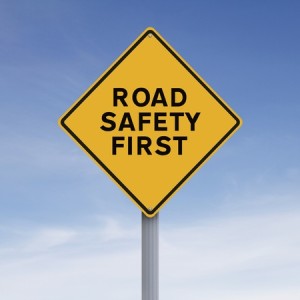A fully loaded tractor trailer can weigh 80,000 pounds or more. Traveling at highway speed, day and night, in good weather and bad, often carrying flammable, explosive, toxic or other hazardous cargo, the potential for death or serious injury in a truck accident is obvious. To make it possible to share the road safely with 18 wheelers and other big trucks, the federal government created the Federal Motor Carrier Safety Regulations (FMCSRs). In addition to the basic rules every driver has to follow, trucking companies and truckers usually have to follow the FMCSRs or similar state rules.
Why are the FMCSRs Important to my Case?
Generally, the FMCSRs or similar state rules, are minimum safety standards for trucking companies. Showing that the trucking company and/or driver violated the FMCSRs or similar state rules may help your Kansas City truck accident lawyer prove the driver’s and/or company’s fault. In some cases violations of the FMCSRs or similar state rules can also provide the basis for recovery of additional damages (sometimes called punitive damages).
Who and What Is Covered by the FMCSRs?
With certain exceptions, the FMCSRs apply to employers and employees operating commercial motor vehicles to transport property or passengers in what is called “interstate commerce”. While the meaning of this term can vary depending on the situation, you can think of it generally as crossing state lines. If the requirements for applying the FMCSRs are not met, then we may be able to use state rules, which are often very similar to the FMCSRs.
What’s in the FMCSRs?
The FMCSRs are hundreds of pages of rules concerning trucking company operations, truck drivers, truck driving and more. Some of the major areas covered are:
Commercial Driver’s Licenses
Drivers of certain kinds of vehicles, for example, 18 wheelers are generally required to have a commercial drivers license (CDL). To obtain a commercial driver’s license, an individual must get a commercial learner’s permit, pass skills and knowledge tests, and meet residency and medical requirements.
Driver Qualifications
The FMCSRS require trucking companies to make sure that their drivers are “qualified”. Some of the requirements to be “qualified” include being age 21, meeting FMCSR medical requirements, English language proficiency and being able to safely operate the type of commercial vehicle being driven.
Driving Rules
Unsafe driving practices like following too closely, improper lane change, excessive speed and not yielding the right-of-way are the major cause of truck accidents. To reduce truck crashes caused by unsafe driving a whole portion of the FMCSRs is devoted to rules for driving commercial motor vehicles. Some of the areas covered are rules for driving in adverse weather conditions. prohibitions against texting while driving and radar detectors and restrictions on cell phone use.
Drug and Alcohol Testing
Being on the road with a big rig driven by a trucker under the influence of alcohol and/or drugs is probably one of the scariest driving situations you can think of. To help avoid having truckers under the influence behind the wheel of tractor-trailers and other big trucks, the FMCSRs contain detailed drug and alcohol testing requirements. Among the requirements are a comprehensive drug and alcohol testing program, including pre-employment, random, post-accident and reasonable suspicion testing.
Equipment Requirements
Equipment failures in truck parts essential for safe operation like brakes, tires and steering are known truck accident causes. To prevent crashes caused by failures in essential safety systems, the FMCSRs contain very detailed vehicle component standards. Examples include detailed brake specifications and performance requirements, detailed requirements for the type, quantity, color and location of lighting, rules concerning glass, windows, emergency equipment, cargo securement and other areas.
Hours of Service
Being awake and alert are basic to safe driving. Yet, driver fatigue continues to be a factor in truck wrecks. To reduce crashes due to driver fatigue, the FMCSRs limit how long a trucker may drive and be on duty. These are called “Hours-of-Service” or HOS regulations. Some drivers are also required to maintain records, often called “logs”, to document compliance with the HOS regulations.
Inspections
Like having an annual physical exam to identify health issues before they become major medical problems, regular inspection, maintenance and repair are basic to safe truck operation. To help ensure that equipment problems are identified and corrected before they cause a truck crash, the FMCSRs include comprehensive inspection requirements like pre and post-trip inspections, roadside and annual inspections.












